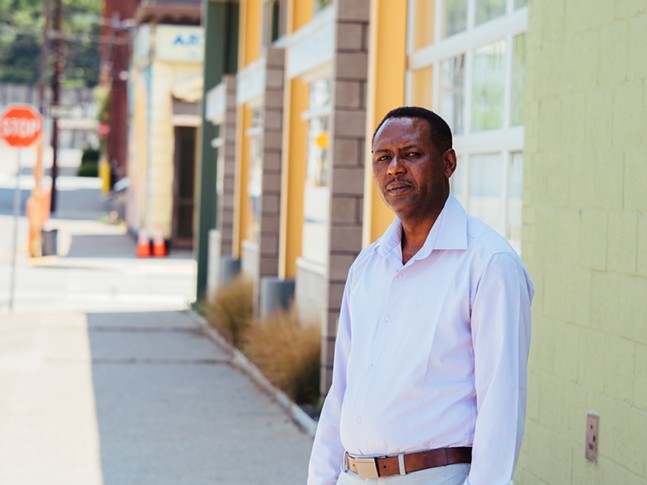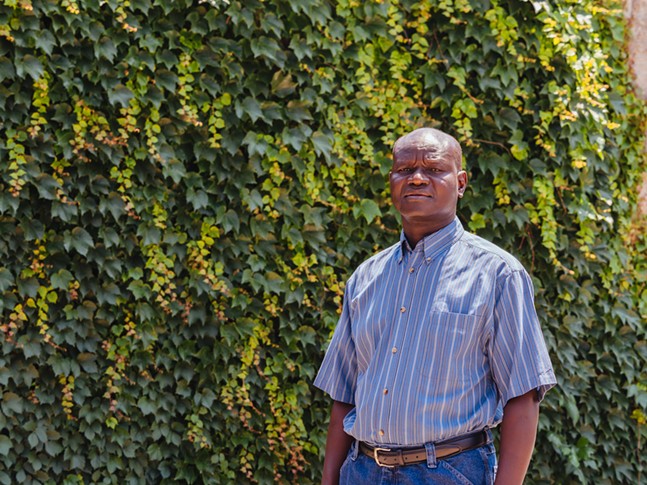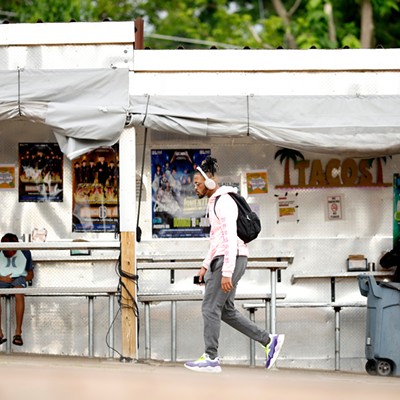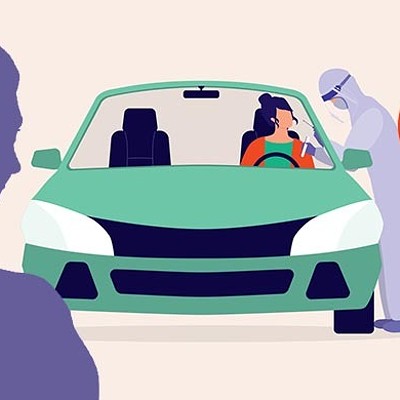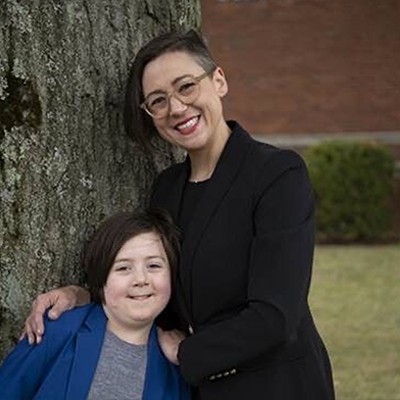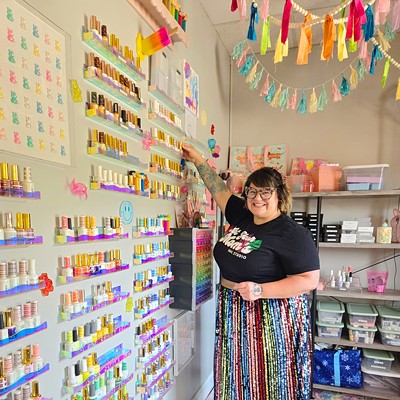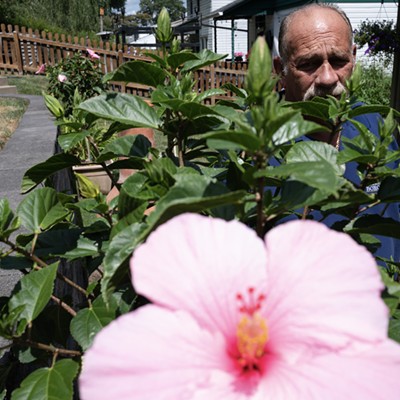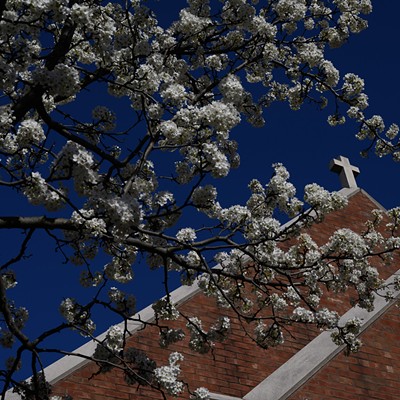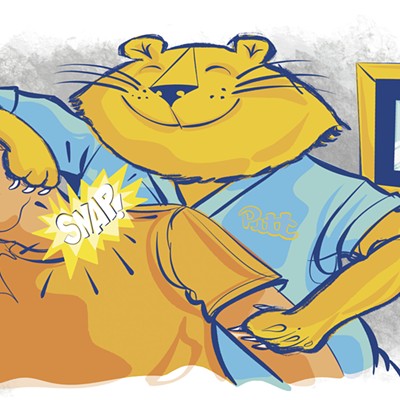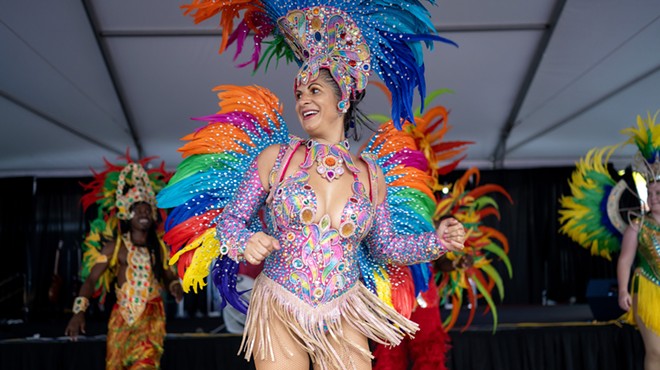Mohamed Hamid hasn’t been sleeping well.
The 42 year-old currently lives in Penn Hills with his wife and 20-month son but grew up in Sudan, a country now gripped by a violent conflict. He’s heard that some of his family members have been shot and killed in the streets. Sometimes, when he’s able to get his family on the phone, he hears his father cry.
“I can’t do nothing, so I’m super mad for that,” Hamid says.
Conflict of some form has hung over Sudan for most of Hamid’s life. In 2013, he came to the United States after first fleeing to neighboring Libya. A period of relative peace followed before violence once again erupted in April.
“All my life is history,” Hamid says. “It’s bad, bad history … I’m crying sometimes, because I see this fighting before more than 25 years ago.”
Conflict that’s been simmering for years in Sudan recently boiled over, with rival factions the Sudanese Army and the Rapid Support Forces tussling for power in what’s essentially a civil war. It can be traced back to the mid-1990s, according to Lou Picard, a professor and researcher at the University of Pittsburgh’s Graduate School of Public and International Affairs who spoke with Pittsburgh City Paper while at work on a nonprofit project in Uganda near the border of South Sudan.
Like Hamin, many other Pittsburgh-area Sudanese residents experience acute anxiety as they follow events in Sudan through news reports, social media, and overseas communication with loved ones back home. While political divide ravages Sudan, those living around Pittsburgh have put aside any potential differences and come together in support of each other.
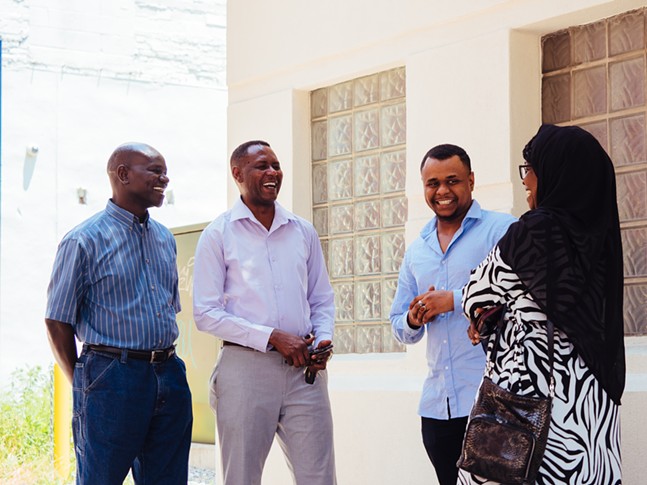
“We’ve been coexisting really well,” says Benedict Killang, president of the organization Sudanese Communities of Pittsburgh. “It is only politics that has brought about these differences. So we here in Pittsburgh are trying to stay away from politics and be as Sudanese. There’s no north, there’s no south. So we’re able to help each other.”
Killang works for Allegheny County’s Department of Human Services, facilitating services and dialogue with immigrant and refugee populations. His community group, separate from his government work, regularly brings together about 100 people, he says. Killang lives in Whitehall and says Sudanese people are largely clustered around South Hills communities such as Baldwin and Castle Shannon. Though Sudan has been wrought with intense religious differences, he says folks in his community group are proud of their cultural and spiritual diversity.
Countries around the world, including the United States, are attempting to broker a ceasefire between the two groups. However, for now, the conflict continues.
“This was ongoing, but after some time, they were not able to contain it anymore,” Killang says. “And it was really worrying. Some of us do have relatives, friends, parents back there.”
Many have fled to countries such as Uganda, according to Picard. South Sudan has also become a haven for some struggling in Sudan.
“I think most of the population in the north, most of them are going to the south because it is relatively calm,” Killang says. “It’s not that it’s very, very peaceful, but it’s relatively calm. Better than the north.”
It’s unclear just how intense the conflict will get and for how long it will rage on.
“To this point, we are even afraid that it’s going to be a full-blown conflict, not only in Khartoum, but in all the surrounding areas … there is no timeline, really,” Killang says. “These guys can not agree with each other, and they keep on provoking each other. It is very worrisome.”
Eleven years ago, South Sudan seceded, forming its own country with Christians and a smaller number of Muslims living side by side — there, things are calmer, but the country is not completely removed from the effects of the conflict to the north, according to Picard. Four years ago, a coup removed Sudan’s dictator Omar al-Bashir, who ran an oppressive, fundamentalist-Islamic government, but he still maintains an influence on the current conflict, Picard says.
While the Sudanese Army has more established power, Picard says, each side has similar capacities for sustained warfare, drawing from different strengths and weaknesses. The Sudanese Army has more direct ties to Bashir but neither side would likely promote democracy if it emerged victorious.
“There may be some slight nuances in terms of repression, but both of them, in my view, are going to be oppressive and are basically going to be extractive of resources in nature,” Picard says.
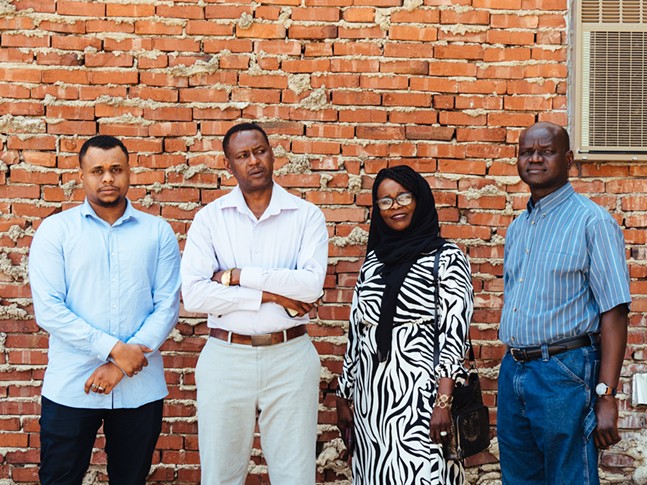
Mohamed Fadulalla, 27, lives in Homewood and works with Hamid at a convenience store. He, too, is worried about his family members in Sudan, who struggle to get food. When he talks to his mother on the phone, he tells her the only thing to do is to “just be patient,” he says.
“What can I say? It’s a war, you know?… I can’t say something more than that,” he says.
Kawthar Albe, a 46-year old Beechview resident, is originally from South Sudan but largely grew up in the north. She fled the country in 2006.
“I’ve never been back,” she says. “And it’s not because I don’t want to, it’s just because the situation didn’t allow me to go.”
She shares Hamid’s struggle with insomnia. She goes to bed with headaches and wakes up with headaches. She has family and friends still in Sudan and South Sudan.
“I can’t sleep, and I know that when I go to the media or to my Facebook, I just look into family’s babies and friends’ babies and pray that nothing bad will happen to them or harm them, or even they die from hunger or somebody killed them or raped them, because all that stuff’s happening right now,” Albe says.
She’s found that her anxiety extends beyond concern for just her own loved ones.
“You get to a point where, it’s not that you just worry about your immediate family. You’re worried about the entire country,” Albe says. “You worry about where you used to live your entire life, and everything is just going down.”

